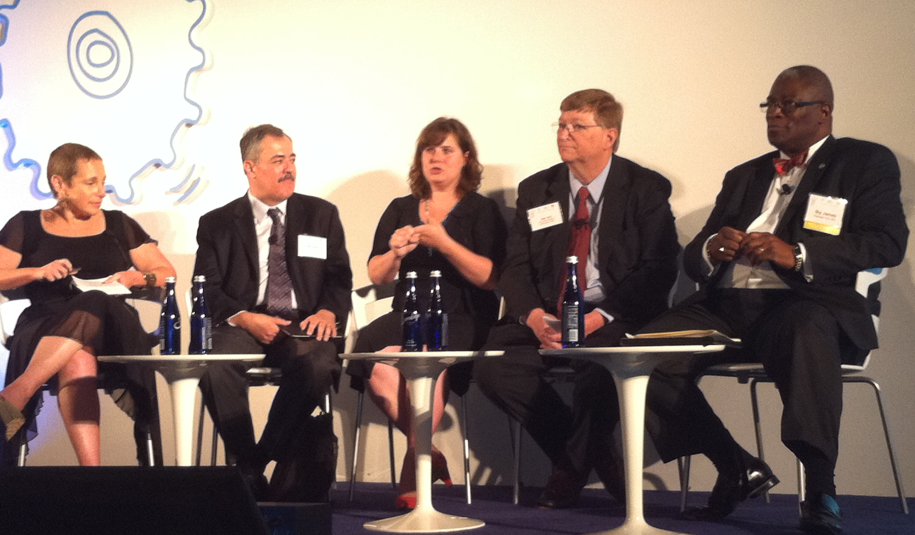Using data from citizen-powered mobile and web apps has become such a clear best practice for city governments, that a new question was the focus at the 7th annual Mayors’ Innovation Summit held in Philadelphia last week.
What’s next?
When it comes to moving the civic technology movement forward, the consensus was twofold: we need to continue reaching out to new user bases and seeking better ways to make sense of the data we’re collecting. (A similar need for deeper goals also came out of a civic innovation panel)
“We’re going to have to get better as cities at processing all of this info,” said Mesa, Ariz. Mayor Scott Smith, whose iMesa application invites ideas from citizens for how to make Mesa a better place to live. He reported the app is already becoming overloaded with data, in his words “a great problem to have.”
But if cities are to properly process data gleaned from these civic apps, officials must make sure they’re receiving a holistic view of community sentiment. Chris Osgood, Co-Chair of Boston’s celebrated New Urban Mechanics department, suggested “tailoring outreach to the motivations of users” when doing outreach to pockets of citizens reluctant to participating with the apps.
For example, Osgood split-tested two different fliers around Boston to encourage Boston’s Dudley Square community to use Citizen’s Connect — a product of Public Stuff, the company that is managing both Boston and Philadelphia’s 311 mobile apps — to report potholes.
After sending out a group of intrepid interns to account for every pothole in Dudley Square, he released one flier that said “Potholes in Boston? Get them fixed” and another that said “Potholes in Dudley Square? Get them fixed.” While the Boston ad had limited success, the more locally targeted ad compelled citizens to report 80 percent of the potholes.
Such full-scale civic engagement could be the key to more inclusive legislation.
“If in the year 2020, if we’re still crowdsourcing pothole location as opposed to development of policy, we may all have collectively failed,” he said.
The summit is part of the U.S. Conference of Mayors, of which Philadelphia Mayor Michael Nutter is its chairman this year, and was co-organized with Temple’s Fox School of Business and the City of Philadelphia.







